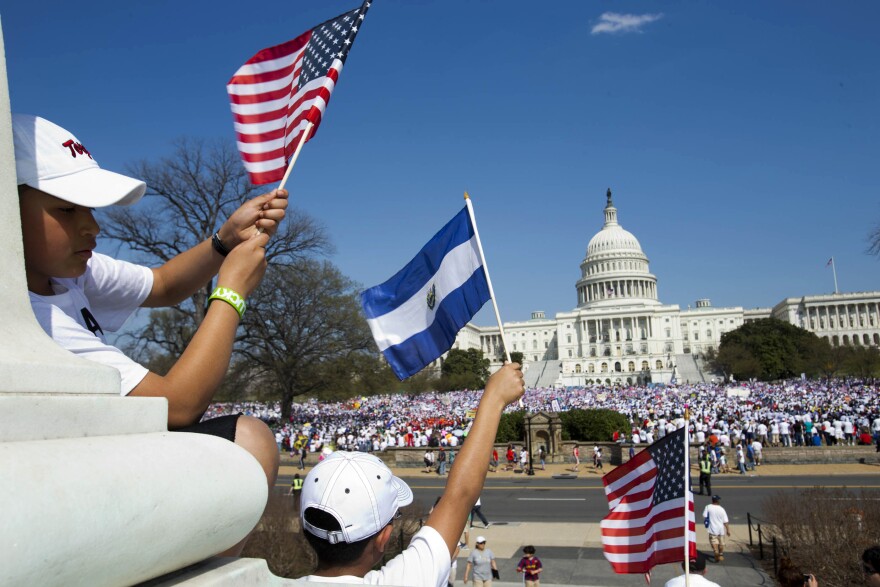Salvadorans are flocking to Virginia, a trend that new Census numbers say has increased since the civil war in El Salvador ended more than 20 years ago. One center of that community is a neighborhood in Alexandria.
When she comes to El Pulgarcito restaurant across the street from her office, Evelin Urrutia likes to order a kind of traditional Salvadoran pupusa -- evueltas chicharron con queso.
It may not be on the menu, but the folks behind the counter know that’s a pupusa stuffed with pork and cheese. Like many Salvadorans who call this neighborhood home, she likes how it reminds her of El Salvador. Even the name of the restaurant, El Pulgarcito, is a nickname for the country.
“El Salvador is the smallest country in Central America," Urrutia says. "So we usually will call it Pulgarcito because it’s really small."
Pulgarcito, that means little finger, is a moniker that grips this neighborhood on the border between Arlington and Alexandria — an area known as Arlandria.
That’s what the gringos call it. Locals call it something different.
“We call it Chirilagua," Urrutia says. "Chirilagua is a little town in El Salvador where a lot of people who immigrated in the late 70's early 80's were coming from."
That was a time when the country was gripped in a bloody civil war that went on for more than a decade.
“El Salvador was in really bad conditions during that time. It was really hard for people to live a normal life," says Urrutia.
For that first generation of immigrants, like Urrutia, they remember what life was like in El Salvador. And it’s a difficult memory.
“People were getting killed. You would see completely destroyed neighborhood communities. Teachers were afraid to teach. People were afraid to go out and do the daily stuff," Urrutia says.
According to new Census numbers, Salvadorans are the largest group of Virginians who were born outside the U.S. In the last decade, that group has increased by about 35,000 people. That’s a 51-percent increase.
“El Salvador is probably the most violent country in the world right now," says Frank Shafroth at George Mason University. “It’s a country of extraordinary gang violence. It’s the murder capital of the world. It’s a country where on average there’s nearly one homicide every hour."
The civil war in El Salvador officially ended back in 1992. But that didn’t stop the violence.
“The drug gangs really control the streets. They control the neighborhoods. So it’s a place where if you want to raise children, if you can get out you will use whatever means you can to get out," says Shafroth.
Get out and go to Virginia. Other states don’t have massive number of foreign-born Salvadorans showing up every year. Hamilton Lombard at the Weldon Cooper Center for Public Service says there are a variety of reasons why they are pulled to Northern Virginia.
“Relative to the rest of the country, it still has a very low unemployment rate. It’s a very attractive place. And if you have a network and you have a cousin or a family in Texas or something you might tell them I can get you a better job in Northern Virginia," says Lombard.
That’s the attraction of this neighborhood for people like the Morino family. They came here in the late 1970's and opened El Pulgarcito restaurant. Their son Jimmy Morino was born here in the U.S. and served in Iraq. Now he helps run the restaurant.
Morino says Salvadorans are attracted to Virginia because they’ve heard from friends and relatives that’s where the jobs are.
“For me, an illegal will get a job here faster because if they work for someone who cuts grass or does construction, they’ll hire them quickly because they’re saving money because they are already underpaying them compared to someone who has papers because they’ll have to give them full benefits and all that stuff," says Morino.
Pockets of suburban Los Angeles have Salvadoran communities, but the Washington suburbs of Virginia are increasingly the urban center of Salvadoran life in America.



